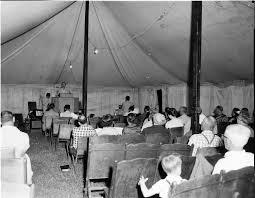Struggles and questionings aside, the call to serve helped anchor me. I believed the Lord had work for me to do and I pressed ahead, knowing he loved me, that he was after my best, regardless. Even as I wrestled with a sense of unworthiness and the feeling at times I was a junky heap of damaged goods, the assurance of his care sustained me. I knew who deserved credit. Not me, that was for certain.
So where some useful cause might arise – sponsoring a student, leading a class, encouraging a co-laborer (of my own culture or another) – I felt at home there. The discordant clamorings of unhealthy desire quieted for me most in such times. Times I poured out my energies, my prayers for others.
The sacrifices of God are a broken spirit; a broken and contrite heart, O God, you will not despise*. The ancient passage consoled me again and again through my bitter-sweet years. Laying my wounded heart before him was all I knew to do. Turning myself over to his mercy, repeatedly, sincerely. All that the Father gives me shall come to me; and he that comes to me I will in no wise cast out*. Rehearsing such verses before him tethered me. His Mercy remained a constant. Ever meeting me in my places of brokenness, never condemning while never at the same time ‘giving me a pass’.
Regret – shame – contrition – repentance – thanksgiving. The cycles continued, ending every time at the door of mercy. Mercy from one nearer than a brother. Jesus. Friend of sinners.
My theme verse may well have read something like the following.
“I obviously need help! I realize that I don’t have what it takes. I can will it, but I can’t do it. I decide to do good, but I don’t really do it; I decide not to do bad, but then I do it anyway. . . It happens so regularly that it’s predictable. The moment I decide to do good, sin is there to trip me up. . .” (Romans 7, the Message)
Notions of dodging responsibility, passing the buck, excusing my wrongs held no attraction. I knew what disobedience felt like, knew wrong-doing, wrong-thinking, wrong-fantasizing when it entered the neighborhood. Like a drug-detecting dog, my conscience picked up transgression’s scent. The buck stopped with me.
Those times in Christian culture were such that few religious communities – wherever found – seemed able to walk with their people through the mine fields of sexual brokenness. There were likely more caregivers available than we knew. That was the part of the problem. They weren’t known.
Occasionally through my overseas years a handful of struggling men would surface, gravitating together for encouragement and prayer. I linked up with such a group for a season. The effort was commendable as far as it went. Yet, although we did not intend to purposefully avoid certain topics – like sexual purity – we did. Each of us lived in Africa where wild game abounded, yet we always managed to ignore the elephant always in the room.
A day would eventually come when Missions agencies, church councils and team leaders would, in compassion, open doors that had been long shut to needful conversation. To counsel, to pray with the broken and their spouses. During the times we were in, however, many in Christian service simply did the best they could to forge ahead. Pretty much in silence, managing demons. Some, myself included, muddled along for years. The Holy Spirit graciously watched over our wounded, transgressing, saved-yet-fractured souls. We mercifully made it through without falling as casualties. We brought with us some scars, no question, yet still moving forward. Limping with rays of hope, our marriage companions often our greatest source of strength.
For other men, their suffering goes on undisclosed, unaddressed, even today. Their pain real, their wounds deep, shame binds them and replays a false narrative in their mind. . . there is no place to turn.
May these gain help. Through the Friend. Through His children, his wounded healers.
Like those I would one day find.
©2017 Jerry Lout *Psalm 51 *John 6:37


